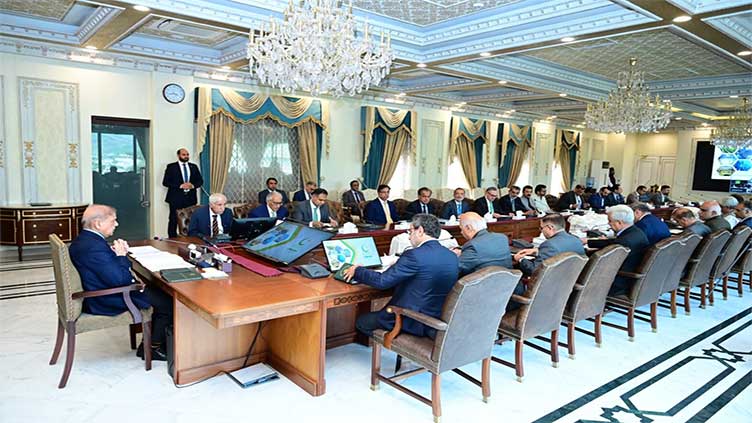Foreign Investment
ISLAMABAD: Prime Minister Shehbaz Sharif has directed the formulation of a comprehensive strategy to strengthen cooperation and trade partnerships with Azerbaijan, particularly in the fields of economy and investment.
Chairing a high-level meeting focused on enhancing ties with Central Asian governments, especially Azerbaijan, the prime minister emphasized the strategic geographic advantage Pakistan offers as a natural economic corridor to the sea for Central Asian states.
“Pakistan geographically offers a natural economic corridor to the sea for Central Asian states,” PM Shehbaz stated. He highlighted the longstanding fraternal ties between Pakistan and Azerbaijan, which have spanned decades, and underscored the potential for deepening economic relations.
The prime minister pointed out that foreign investment in Pakistan is on the rise, attributing this increase to the business and investment-friendly policies implemented by the government.
He directed the development of a comprehensive action plan aimed at boosting trade efficiency and expanding the current trade volume between Pakistan and Azerbaijan.
During the meeting, the prime minister was briefed on various initiatives designed to enhance trade volume, capacity, and overall trade and investment between the two nations.
It was highlighted that there is substantial potential for energy cooperation with Azerbaijan, with ongoing discussions about a preferential trade agreement between the two countries.
Several high-profile officials attended the meeting, including Deputy Prime Minister and Foreign Minister Mohammad Ishaq Dar, Minister for Planning and Development & Special Initiatives Ahsan Iqbal, Federal Minister for Industries and Production Rana Tanveer Hussain, Federal Minister for Privatization and Investment Abdul Aleem Khan, Federal Minister for Power Sardar Owais Khan Leghari, Federal Minister for Petroleum Dr. Musadik Malik, Federal Minister for Commerce Jam Kamal Khan, Special Assistant to the PM Tariq Fatemi, and other senior officials.
Earlier on Wednesday, PM Shehbaz Sharif approved joint ventures between Chinese and Pakistani companies aimed at relocating Chinese industries to Pakistan.
In a meeting discussing matters related to the Board of Investment (BoI), he reiterated that promoting both local and foreign investment in Pakistan is a top priority for the government.
He emphasized that the government is taking all possible steps to create a business-friendly environment for traders and investors. The prime minister directed the concerned authorities to submit a comprehensive report on the follow-up of Memorandums of Understanding (MoUs) signed between Pakistani and Chinese companies during his recent visit to Shenzhen, China.
The government’s efforts to attract foreign investment and strengthen trade relations with key international partners, such as Azerbaijan and China, reflect a broader strategy to bolster Pakistan’s economic standing.
By leveraging Pakistan’s strategic location and fostering an environment conducive to investment, the government aims to drive sustainable economic growth and development.
The focus on Azerbaijan, in particular, underscores the potential for regional economic integration, with Pakistan serving as a vital link between Central Asia and global markets. The ongoing discussions and potential agreements with Azerbaijan signal a proactive approach to diversifying Pakistan’s economic partnerships and tapping into new opportunities for growth and cooperation.
I am a dynamic professional, specializing in Peace and Conflict Studies, Conflict Management and Resolution, and International Relations. My expertise is particularly focused on South Asian Conflicts and the intricacies of the Indian Ocean and Asia Pacific Politics. With my skills as a Content Writer, I serve as a bridge between academia and the public, translating complex global issues into accessible narratives. My passion for fostering understanding and cooperation on the national and international stage drives me to make meaningful contributions to peace and global discourse.










